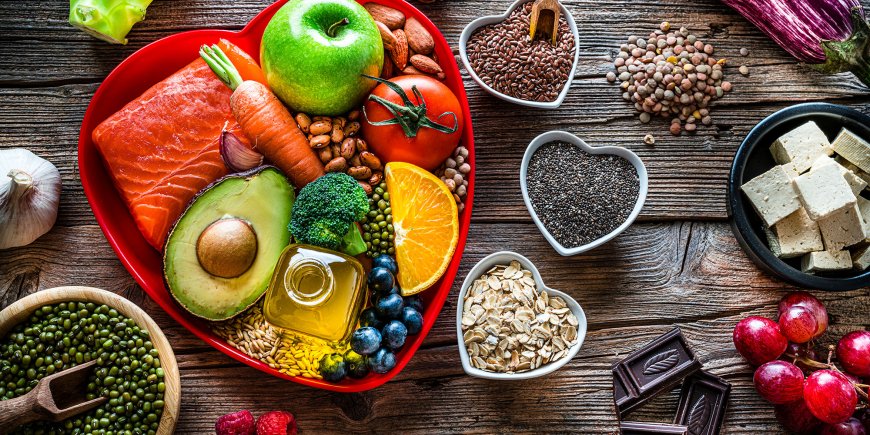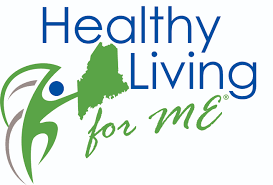Preventing Heart Disease with Nutrition: A Guide to Making Smart Food Choices

Cardiovascular deaths are increasing at alarming rates across the globe. Reports of dignified people collapsing and dying are not new to our ears. According to statistics, mortality from cardiovascular diseases accounts for the majority of Non-Communicable Disease (NCD) deaths. NCDs, also referred to as chronic illnesses, result from a combination of genetic, environmental, physiological and behavioural factors. While we may not be in control of genetic factors, we can reduce our risks by adopting healthy lifestyles. One of those steps is making smart food choices. In this blog post, we'll highlight the superfoods we need to incorporate into our diet for a healthy heart.
Nutrition and Heart Health
Diets low in saturated and trans fats, cholesterol, salt (sodium), and added sugars can help reduce your risk for Coronary Heart Disease.
Some of the best foods for your heart include salmon, nuts, avocados, olive oil, and dark chocolate. These foods are all packed with nutrients that help keep your heart healthy. Salmon, for example, is a great source of omega-3 fatty acids that reduce the risk of heart disease. Nuts are also a great source of omega-3 fatty acids. Furthermore, they are a good source of fiber and thus can help lower cholesterol levels. Avocados are another great food for your heart as they contain monounsaturated fats, which can help reduce bad cholesterol levels and improve overall cardiovascular health. Olive oil is also full of healthy monounsaturated fats as well as antioxidants that can help protect your heart from disease. Dark chocolate is also a great choice for your heart as it contains flavonoids which have been proven to reduce the risk of cardiovascular disease.
Foods to Include in Your Diet
1. Fruits and vegetables: Fruits and vegetables contain nutrients that are good for your heart. As part of healthy eating, always aim for five fruit and vegetable servings daily.
2. Whole grains: Whole grains contain fiber and other nutrients that can help reduce cholesterol levels and improve heart health. Choose whole grain breads, cereals, and pastas whenever possible.
3. Fish: Fish is a good source of omega-3 fatty acids. These fatty acids have been proven to lower blood pressure and triglyceride levels and reduce the risk of arrhythmias (irregular heartbeat). Try to eat fish at least twice a week.
4. Lean protein: Lean protein sources such as chicken, turkey, tofu, or legumes contains low levels of saturated fat and cholesterol, which can help reduce the risk of heart disease. Choose these options over high-fat meats such as beef or pork whenever possible.
5. Nuts: Nuts are another good source of fiber and omega-3 fatty acids. They also contain magnesium, which has been shown to lower blood pressure levels. Eat a handful of nuts every day as part of a healthy diet.
Foods to Avoid for Heart Health
Here is a list of types of food that you should avoid in order to maintain a healthy heart:
1. Saturated and Trans Fats: Saturated fats are mainly found in animal products such as red meat, butter, and lard. Trans fats are commonly found in margarine and some types of cooking oil. Both types of fat can raise your cholesterol levels, leading to heart disease.
2. Refined Carbohydrates: Refined carbs include white flour, white sugar, and white rice. These foods have been stripped of their fiber and nutrients, which can cause spikes in blood sugar levels. Over time, this can lead to insulin resistance and type 2 diabetes, which are the risk factors for heart disease.
3. Processed Meats: Processed meats are those that have been preserved through smoking, curing, or salting. This includes bacon, ham, sausage, and certain deli meats. These meats tend to be high in saturated fat and sodium, both of which can damage your heart health.
4. Sugar-Sweetened Beverages: Beverages like soda, sports drinks, and sweetened coffee and tea can all lead to weight gain from the added sugar. They can also cause spikes in blood sugar levels that may contribute to type 2 diabetes over time. Stick to water or unsweetened beverages instead
Supplements for Heart Disease Prevention
There are several supplements that have been shown to help prevent heart disease. These include fish oil supplements, which provide omega-3 fatty acids. Other supplements that may help prevent heart disease include CoQ10, magnesium, and vitamin D.
Meal Planning Tips and Recipes
Here are some beneficial tips to help you make healthy choices when it comes to meal planning:
- Always choose lean protein sources such as grilled chicken, fish, tofu, legumes, and eggs.
-Limit saturated and trans fats by avoiding fried foods, processed meats, and full-fat dairy products.
-Increase your daily intake of fruits, vegetables, and whole grains.
-always opt for healthy fats such as olive oil, avocado, and nuts.
-Limit your sodium intake by avoiding salty foods and seasonings.
-Drink plenty of water throughout the day.
Conclusion
Eating the right foods is an important part of preventing heart disease. Making smart food choices, such as avoiding saturated and trans fats and increasing your fiber-rich fruits and vegetables intake, can help reduce your risk for heart disease. It's also important to track how much sodium you eat each day, as high sodium intake has been linked to increased blood pressure, which can increase your risk for heart disease. By following these tips and exercising frequently, you can make sure that you are taking steps toward protecting your cardiovascular health.







